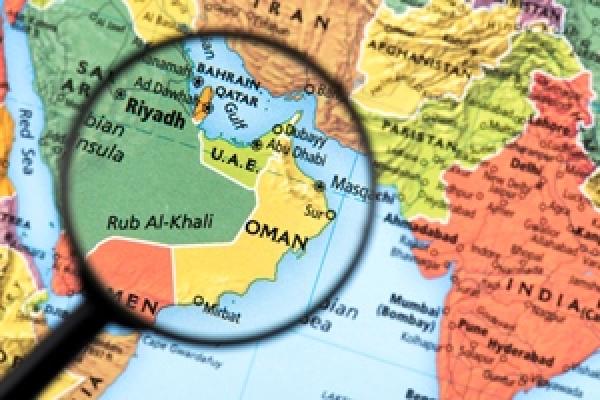
Steamship Mutual
Published: June 15, 2017

On 5 June, Saudi Arabia, the UAE, Bahrain, Egypt, Yemen and Libya cut diplomatic ties with Qatar. The impact of these restrictions is evolving and Members are referred to the dedicated page on the Club’s website for information on the restrictions being applied by each country.
The current position is that Qatari flagged vessels and other vessels which have or are due to call in Qatar are prohibited from calling at certain ports in the states which have imposed restrictions. This is a major concern for the shipping industry and those which trade to this region.
In this update, the issues that may arise in consequence of the restrictions under both bills of lading and charterparties are discussed.
Change of Destination and Liberty to Deviate
Carriers who have contracted to carry cargo to or from Qatar, but are no longer able to do so due to the restrictions, are advised to carefully check the terms of the Bill of Lading or other contract of carriage issued.
The Bill of Lading terms may permit the cargo to be delivered to a destination other than that originally agreed eg Qatar. If so there ought not to be any Club cover implications but this will depend on the terms of the contract, including the applicable law and jurisdiction provisions applicable to the contract of carriage, and local legal advice may be necessary.
Similarly, and again subject to the contract terms and applicable law and jurisdiction provisions, a change to the port rotation which has been scheduled in order to comply with these restrictions, for example where a vessel is destined for a Qatari port but is calling at one of the affected ports prior to or following Qatar, may be possible. Many contracts of carriage include wide liberty clauses permitting deviations in such circumstances.
Even if there is no applicable liberty clause it may still be possible to deviate from the scheduled port rotation. Most contracts of carriage incorporate the Hague or Hague Visby Rules. Article IV Rule 4 provides that a reasonable deviation shall not be deemed to be a breach of the Rules or the contract of carriage, and that the carrier is not liable for any loss or damage resulting. Subject to any other terms in the contract, if the Rules are incorporated, members would be permitted to deviate in order to comply with the restrictions provided that the decision to do so is “reasonable”. There is no clear authority on what would be “reasonable” and any deviation would be assessed on its own particular facts and circumstances.
Members are advised to always check with the Club prior to taking any decisions to deviate.
Where the circumstances allow, it may also be possible for the parties to reach an agreement that discharge will take place at an alternative place.
Transhipment
Difficulties may arise where a vessel is carrying cargoes to a number of different destinations, for example container line operators. In these circumstances, there may be the opportunity to tranship cargo, for example transferring containers onto a feeder carrier for onward carriage to Qatar, in order to ensure that the ocean carrier is able to comply with the restrictions. However, whether this will be possible in any particular port, and if so what terms might apply to Qatari bound cargo at any transhipment port, will require local advice.
Defence to Claims
As set out above, most contracts of carriage incorporate the Hague or Hague Visby Rules. Article IV provides certain defences to cargo claims, including Article IV (g) “Act or restraint of princes, rulers or people, or seizure under legal progress” and (q) “Any other cause arising without the actual fault or privity of the carrier or without the fault or neglect of the agents or servants of the carrier, but the burden of proof shall be on the person claiming the benefit of this exception to show that neither the actual fault or privity of the carrier nor the fault or neglect of the agents or servants of the carrier contributed to the loss or damage.”
Whilst always dependent on the applicable law and jurisdiction in which any claim is brought, these provisions may provide a defence to any cargo claim brought as a result of changes made to accommodate these restrictions.
Frustration and Force Majeure
Events which take place after entering into the contract, that are not the fault of the parties, may result in it being impossible to perform either the whole or part of a contract. Alternatively, if performance of a contract has become radically different from that which was contemplated it may be frustrated.
In circumstances where a vessel cannot get close to the nominated port, the charterparty may become frustrated. Whether a charterparty is frustrated is far from straightforward and will require a detailed factual analysis of the length and effect of the delay, for example the length of delay would need to be considered against the period of the charterparty and the extent of the permitted trading as against the areas affected by the restrictions. This analysis must be done at the time, and cannot be done with the benefit of hindsight.
However, it should be borne in mind that the fact that performance may become more expensive or more inconvenient is unlikely to be sufficient to frustrate a charterparty.
The extent and impact of the restrictions is also evolving and this may have a bearing on whether frustration can be established.
Frustration is an English law concept but most charterparties include force majeure clauses. Force majeure is a generic term for events beyond the control of the parties to a contract which prevent, delay or hinder their ability to perform the contract. The term has no specific legal meaning and for it to have any effect, parties to a contract need to define those events which they agree constitute force majeure.
Many charterparties contain standard clauses or bespoke negotiated force majeure provisions. Whether such a clause will assist the parties will depend on the specific wording. In addition, precise notice provisions may apply in order to be able to rely on such clauses.
Legal advice should be sought before relying on frustration or a force majeure clause to bring a contract to an end.
Safe Port Warranties
Charterparties often contain warranties by charterers as to the safety of the port to which the vessel is ordered. It is well established that a port will not be safe if a vessel cannot reach it, use it and leave it without, in the absence of some abnormal occurrence, being exposed to a danger which could not have been avoided by good navigation and seamanship. Unsafety is not limited to physical dangers, but can also include exposure to political unsafety. Therefore, a port may be unsafe if there is a risk of seizure, or if the vessel may be detained or blacklisted.
Under a time charter, if an unsafe port has been nominated, owners may be entitled to refuse to comply with that order, prior to arrival of the vessel at the port. The position is slightly more complicated under a voyage charter and unless there is an express agreement with owners, charterers may not be permitted to nominate a substitute port.
Sanctions Clauses and Charterparty Orders
Charterparties often contain provisions which specifically address the parties’ obligations where government actions prevent cargo from being shipped or delivered. Although these were originally prompted by the Iranian sanctions regime, they may be wide enough to cover these restrictions. For example, they may include wording such as “restrictions”, “prohibitions”, “sanctions” or “boycotts”. It will also need to be considered whether the clauses also respond to the entities which have imposed these restrictions. Parties should carefully consider the wording of any sanctions clause, in the context of the charterparty as a whole, to establish whether they are wide enough to cover these current restrictions.
Members negotiating new fixtures should consider incorporating sanction clauses in their fixtures - for example, the BIMCO sanctions clauses.
In addition to safe port questions and sanctions clauses, charterparty and bill of lading issues may arise if vessels are no longer able to perform charterer's orders as a result of the Qatari restrictions. If so, dependent on the relevant contract terms owners may be able to call for revised orders from their charterers.
Comment
At the present time, it is difficult to predict how the Qatari restrictions will develop and evolve. However, it is clear that they will impact on the performance obligations in many shipping contracts. In order to determine what steps can be taken in order to avoid contravening the restrictions, the particular facts and terms of the contact will need to be carefully considered.
Those entering charterparties may also wish to consider including specific wording which allocates the risk of additional delays or costs as a result of these restrictions.
Should you have questions or queries relating to the restrictions referred to in this article, please speak to you your usual Club contact.


